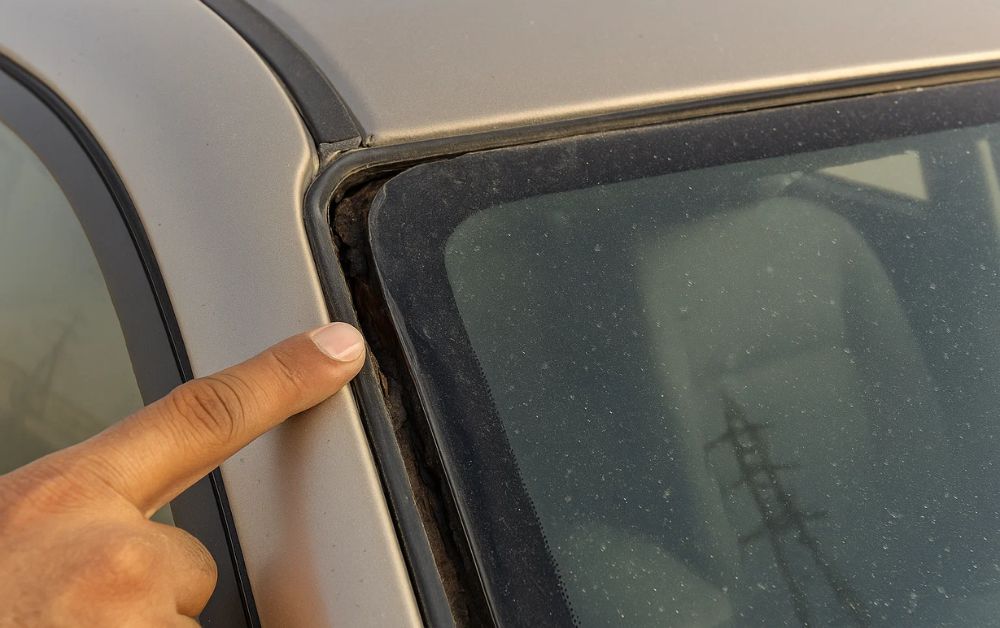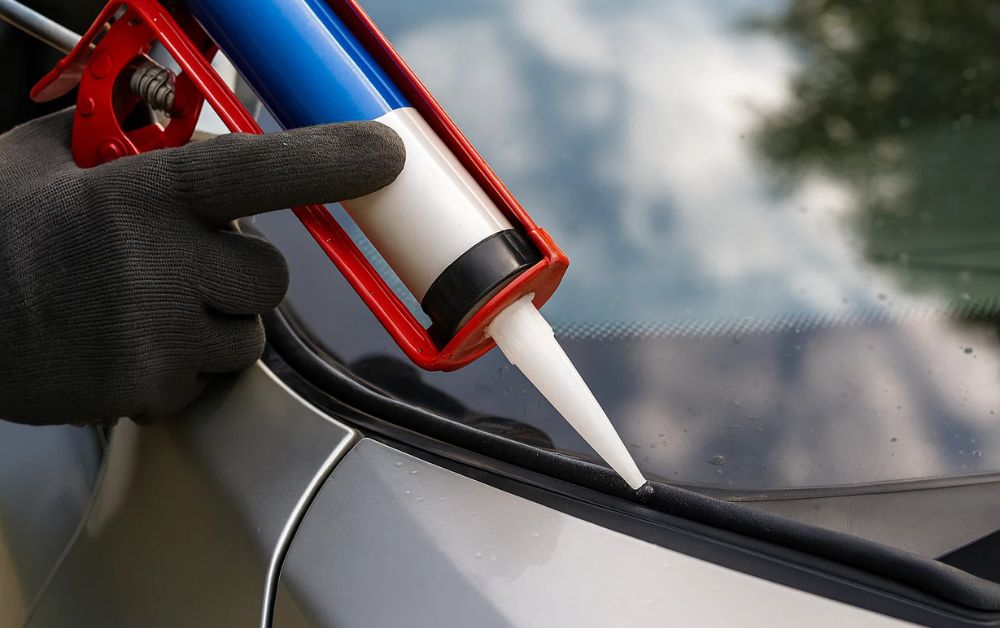With the blistering hot, dry, and sometimes volatile climate of Abu Dhabi, having a vehicle in perfect shape is not only safety and comfort-critical but also essential. One of the usually overlooked but essential parts of a car’s overall structure and protection of the inside is the windshield. When it starts leaking, the effects may be much worse than the mere drops of water on the dashboard. Leaks in the windshield compromise visibility but also cause water damage, compromising the vehicle’s overall safety. This blog explores the common causes of windshield leaks in Abu Dhabi’s climate. It offers insights on identifying and resolving them, highlighting the importance of timely Autoglass leak repair Abu dhabi services.

Introduction: The Impact of Abu Dhabi’s Climate on Windshields
Abu Dhabi is characterized by high temperatures, extreme sun exposure, dust storms, periodic humidity, and rainfall. These climatic conditions create constant stress on your automobile’s windshield and its seal. Although windshields are built to handle rugged conditions, extended exposure to such conditions may lead to wear and tear over some time. If you observe damp carpets, foggy glasses, or a pungent odor inside your vehicle, you are likely dealing with a windshield leak.
Early detection and repair of windshield leaks can save you dollars on interior damage and prevent long-term structural damage. Let’s look at the underlying causes of such leaks, particularly in the specific environmental conditions of Abu Dhabi.
1. Intensive Heat and Thermal Expansion
One of the main reasons for windshield leaks in Abu Dhabi is the region’s high heat. Temperatures during the day commonly reach more than 45°C during summer—thermal expansion of the windshield glass and the frame results from this high temperature.
Over time, this repetitive expansion and contraction cause weakening and cracking of the stress areas and adhesive seals that secure the windshield. Once the integrity of these seals is broken, water and moisture easily penetrate through during sporadic but intense rains or washing.
2. Misaligned Windshield Installation
If your windshield was recently replaced and you notice you’re getting leaks, chances are that the problem lies with the quality of the installation. Substandard artistry, the application of low-quality adhesives, or neglect to provide the windshield a sufficient amount of time to cure can all lead to the development of gaps between the windshield and the frame.
In Abu Dhabi, where windshield replacement is standard due to flying objects in sandstorms or driving on the highway, professional experts must carry out the installation. One should also visit auto glass leak repair specialists in Abudhabi to fix faulty installations before the damage worsens.
3. Weathered Weather Seals
Rubber weather strips along the windshield seal out water and air. But UV light, combined with desert conditions like Abu Dhabi, can dry out, crack, or shrink rubber seals over long periods. When the seal loses its elasticity, it cannot fit tightly around the windshield any longer and allows paths for leaks to occur.
Worn-out seals are among the most frequent and easily missed reasons for leaks on the windshield. Good inspection and maintenance can catch worn weather seals early on and replace them before the issue gets out of hand.
4. Sand and Dust Buildup
The dry conditions in Abu Dhabi may contribute to depositing fine sand grains on the windshield area. Such grains can penetrate the corners and seals of the windshield and induce abrasions or damage the adhesive bonds.
In addition, the sand also serves as a grinding agent that wears down the sealants slowly. With time, the accumulation hinders the seals from sealing properly, causing water to seep into the vehicle’s interior while washing or raining.
5. Body Frame Damage or Corrosion
Leaks in windshields may also come from the vehicle’s body frame instead of the glass. When the frame is warped, out of alignment, or rusted—particularly in the area around the windshield—it can cause seal failure.
Though Abu Dhabi’s dry climate reduces the likelihood of rust, cars exposed to sea air (near the coast) or neglected during seasonal rains can still suffer from corrosion. Structural issues may go unnoticed until a leak appears, highlighting the need for periodic inspection by professionals offering auto glass leak repair services in Abudhabi.
6. Clogged Sunroof or Drainage Channels
Most contemporary cars have sunroofs and windshield drainage channels to channel water off the vehicle. In Abu Dhabi, the drainage channels can be easily blocked by sand and other particles after sandstorms.
When obstructed, water flows back and finds additional exit paths, usually seeping into the cabin around the perimeter of the windshield. Maintenance and regular cleaning of drainage components are necessary to avoid leaks caused by these secondary sources.

Conclusion: Proactive Maintenance Is Key
Windshield leaks could begin as minor issues but can immediately turn into full-fledged problems, particularly under the harsh weather conditions of Abu Dhabi. Interior damage, mold formation, and obscured visibility are issues one faces by ignoring a leaky windshield.
Understanding the common causes of windshield leaks in Abu Dhabi’s climate—from thermal stress and improper installation to sand accumulation and deteriorated seals—can help vehicle owners take proactive steps. Regular inspections, proper installation by certified professionals, and prompt response to any signs of leakage are critical.
If you’re facing persistent issues with your vehicle’s windshield, don’t delay—seek professional help for Autoglass leak repair in Abudhabi to ensure your car remains safe, dry, and durable through all seasons. Your windshield can withstand even the harshest of Abu Dhabi’s elements with the proper care and attention.
